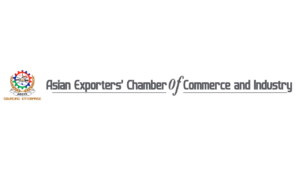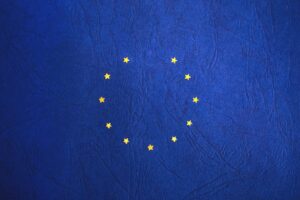The UK Government has announced plans to launch a new subsidy control system following Brexit, built upon ‘UK-wide principles’.
The new system, brought about by The Subsidy Control Bill, will allow public authorities to deliver grants, loans and guarantees without existing bureaucracy and red tape.
Pre-Brexit, the UK followed the EU’s state aid rules meaning almost all subsidies had to be approved by the European Commission. However, with its’ new independent trading national status, the UK is looking to realise a Brexit ambition of being able to determine its own state aid and subsidy rules.
UK business secretary, Kwasi Kwarteng, said that: “Today we’re seizing the opportunities of being an independent trading nation to back new and emerging British industries, create more jobs and make the UK the best possible place to start and grow a business.
“We want to use our newfound freedoms as an independent, sovereign country to empower public authorities across the UK to deliver financial support – without facing burdensome red tape.
“While the UK’s new system will be more agile and flexible, I have been clear that we will not return to the failed 1970s approach of the government trying to run the economy, picking winners or bailing out unsustainable companies. Every subsidy must deliver strong benefits for local communities and ensure good value for money for the British taxpayer.”
Read more: Brexit tariff scheme to help make domestic manufacturing firms more competitive
He concluded that: “Today’s bill marks a clear departure from the EU State aid regime and will ensure our new subsidy system will maintain the UK’s competitive, free-market economy that has been central to our economic success and national prosperity for decades.”
The government has launched the UK’s bid to join the Trans-Pacific trading bloc, an economic zone worth more than £9tr.
Talks have opened today with the Comprehensive and Progressive Agreement for Trans-Pacific Partnership nations (you’ll be glad to know there’s a handy acronym, CPTPP), currently comprising of 11 countries.
The deal could mean tariff-free trade for almost all exports with Australia, Brunei, Canada, Chile, Japan, Malaysia, Mexico, New Zealand, Peru, Singapore and Vietnam.
Boris Johnson commented on the commencement of talks that: “Membership of the CPTTP free-trade partnership would open up unparalleled opportunities for British businesses and consumers in the fast-growing Indo-Pacific.
“It’s an exciting opportunity to build on this country’s entrepreneurial spirit and free-trading history to bring economic benefits across the whole of the UK.”
International trade secretary Liz Truss followed on by saying: “This part of the world is where Britain’s greatest opportunities lie.
“We left the EU with the promise of deepening links with old allies and fast-growing consumer markets beyond Europe, and joining the high-standards Trans-Pacific Partnership is an important part of that vision.”
Read more: UK food and drink exports into the EU halved since Brexit
“Membership would help our farmers, makers and innovators sell to some of the biggest economies of the present and future, but without ceding control over our laws, borders or money. It is a glittering post-Brexit prize that I want us to seize.”
Talks get underway just days after the new trade agreement with Australia was signed.
Food and drink exports from the UK to the EU have fallen by almost half in Q1 2021 compared to the same period last year.
Trade groups have said the figure shows the impact of post-Brexit trade barriers, with the value of exported produce dropping 46.6% to £1.7bn according to data from the Food and Drink Federation.
Head of international trade at the FDF, Dominic Goudie, said of the latest data that: “The loss of £2bn of exports to the EU is a disaster for our industry, and is a very clear indication of the scale of losses that UK manufacturers face in the longer term due to new trade barriers with the EU.”
The main reasons given for the drop in trade are struggles with costs, paperwork and post-Brexit shipping checks.
And global trade has struggled to offset the early year losses with exports to non-EU countries rising by just 0.3%, albeit they now exceed EU exports.
Dairy products, including milk and cream, were most affected, whilst whisky, chocolate, lamb, cereals and sauces also saw significant falls.
A government spokesperson said that: “The impact of the Covid pandemic across Europe has affected trade and depressed demand and it is too early to draw any firm conclusions on the long-term impacts of our new trading relationship with the EU.
“We continue to help businesses get the support they need to trade effectively with Europe and to seize new opportunities as we strike trade deals with the world’s fastest-growing markets.”
Adapting to the new trading environment
If your business has been negatively affected by Brexit, including seeing an increase in shipping costs to issues surround paperwork and customs checks, we can help.
Learn more about our post-Brexit consultancy services here.
UK Customs is under serious threat of losing duty revenue as a mountainous backlog of declarations grows.
At the start of the year, HMRC announced a six-month grace period for importers having to declare on goods imported between 1st January and 1st July, with the first of the delayed batch being due on the 25th of this month.
However, UK Customs looks unlikely to be able to cope with the upcoming deluge of work.
A customs agent, speaking to The Loadstar, said of the situation:: “We’re in a situation where we have maybe millions of declarations due and we have insufficient brokers to get us out of the backlog.
“We have all these importers that have not declared what they’ve imported, and shipments will fall through the system, either because the importer cannot find a broker or they cannot be bothered.
“It leaves HMRC in a quandary; one option is it may further extend the delay or maybe it will find itself missing out on a hell of a lot of income.”
Brokers clearing goods from the EU in the aftermath of Brexit have been required to apply for numerous new certifications, including the Customs Freight Simplified Procedures – the most sought after as it provides swifter clearance of goods.
However, firms have been struggling to attain CFSP approval, with some applications taking almost half a year.
Another issue is faced by brokers processing UK importers’ declarations, whereby taking on EU importers as direct clients can leave them equally liable for any tax due on declared imports, resulting in a situation where a £35 piece of work for a client could leave the broker jointly liable for a £2,300 duty bill.
Read more: Tenth of UK exports have paid unnecessary tariffs
A source told The Loadstar that: “If customs come and audit us and ask us to prove origin and we cannot, they will ask us to pay it, if not they will go to the importer.
“But, with the importer in the EU they could just say ‘come and get us’. Well, HMRC will not do that, and they don’t have to, because they have us, here in the UK, equally liable and much easier to get a hold of.
“If you’re one of the importers that’s missed a declaration, are customs going to find you? Even if they do, they could block subsequent deliveries, but you could just route them through a different company or change the legal terms. It’s almost been left to the good graces of the importer whether we see that duty paid.”
A report by the University of Sussex has found that around 10% of UK exports have unnecessarily paid tariffs since the start of the year.
The University’s Trade Policy Observatory analysed EU data to find that up to £3.5bn of British exports have paid tariffs which they didn’t need to. One reason given that exporters do not automatically benefit from zero tariffs.
Under Rules of Origin, tariffs apply on goods moving between the UK and EU only if the TCA’s Origin requirements are not met.
This has added work and a constant niggling headache for businesses as evidence of origin needs to be provided to avoid the tariffs, with the importer needing to declare that they hold any proof, and traders needing to understand how to classify their goods to cross-check against specific product rules.
As Prof Michael Gasiorek of the Univesity of Sussex summarised, “tariff-free trade is only tariff-free if firms not only meet the Rules of Origin criteria but also can deal with the necessary bureaucracy and paperwork”. Businesses have since told the BBC that they’ve paid millions in tariffs due to complex arrangements for claiming zero tariffs, complications over re-exporting goods and also an expectation that some fees could be recovered in the future.
Read more: New post-Brexit tariff scheme to help make domestic manufacturing firms more competitive
It’s estimated that UK exports into the EU have dropped 15% compared to last year, whilst imports have fallen 32%.
If your business has faced tariffs and is struggling to get to grips with Rules of Origin, download our free guide and workbook here.
The government is to launch a post-Brexit tariff suspension scheme designed to help local manufacturing firms be more competitive by lowering the cost of importing raw materials that are rarely available locally.
Launching next month (June 2021), UK companies can apply for their duties on imports to be temporarily reduced – or even removed.
A similar scheme is available within the EU, however, applications from companies for tariff suspensions had to be assessed by the entire bloc. Following the UK’s departure from the European Union, the UK government can set its own tariff regime.
Minister for trade policy, Greg Hands, commented on the new scheme: “Now we have left the EU we can use suspensions to give UK firms the maximum possible benefit.”
Read more: Internationalisation Fund: Grants available for exporters seeking expert support
“This suspensions scheme will be accessible to importers across the country, and those that are granted will benefit entire sectors.
“They will lower costs and help our superb producers pack even more of a punch when they compete on the global stage.”
You can apply from 1st June here.
Belgium is working to attract UK businesses into the country by offering easier access to the EU.
The charm offensive has stepped up a gear as it continues to evolve and streamline customs processes and offering the opportunity for strategic partnerships.
Werner Rens, of the Belgian Customs Authority, said at a British Chambers of Commerce event that: “Becoming an authorised economic operator (AEO) in Belgium means you become a VIP, as far as Belgian customs is concerned.
“When doing closed border trade with the EU, Belgian customs offers the opportunity to displace the customs office, meaning that the business does not bring goods to customs for physical checks because the warehouse can become authorised as an ‘approved place’.
“And as an ‘approved place’, your warehouse is recognised as a customs office.
“In Belgium, we really believe in the extended gateway principle, which means moving the border posts away from the main ports in an effort to alleviate congestion and keep the supply chains flowing.”
Read more: Internationalisation Fund: Grants available for exporters seeking expert support
Some UK sectors have been left reeling by the effects of Brexit for real, with the dairy industry amongst the biggest losers with milk and cream exports, in particular, dropping 96% year-on-year.
But tools such as becoming an authorised economic operator, as well as understanding and getting to grips with customs declarations, incoterms and rules of origin can help firms to adapt to a new trading environment.
This free post-Brexit checklist and guide is a great place to start, which you can access free right here.
UK milk and cream exports into the EU have plummeted since the start of the year, providing the dairy industry with one of the gloomiest Brexit outcomes so far.
Milk and cream exports, worth £24 million in February last year, dropped a staggering 96% to just £900,000 this year. Cheese exports have also fallen 65% on a year-on-year basis, albeit an improvement on an 85% drop in January.
Whilst trade body Dairy UK suggest that normal patterns of trade are starting to resume, they’ve warned that changes to trade are significant enough to make exporting unviable in a number of cases.
Dominic Goudie, head of international trade at the Food and Drink Federation, commented that: “Exports to our biggest market, Ireland, have also dropped more than two thirds. UK businesses continue to struggle with inconsistent and incorrect demands at EU borders, and small businesses have been hardest hit.
Read more: Food and drink exports crippled by Brexit and lockdowns
“It is essential that the EU-UK partnership council and its trade specialised committees are convened to urgently address problems.”
The Department for International Trade has launched a new grant scheme designed to support UK firms to expand internationally.
Called the Internationalisation Fund, grants of between £1,000 and £9,000 will be made available to eligible firms covering a wide range of international business activities, from export consultancy to digital marketing.
Businesses will need to cover between 40-50% of the costs themselves with the grant covering the rest and can be applied to activities including:
- Market research
- IP advice
- Translation services
- International social media/SEO
- Trade fairs (where no TAP funding is available)
- Independent market visits
- Consultancy and other international commercial services
The eligibility criteria are:
- The company must be based in England
- The company must be a small or medium-sized enterprise (SME) with up to 250 employees
- No more than 25% of the business is owned by an enterprise that is not an SME
- Annual turnover does not exceed €50 million or annual balance sheet does not exceed €43 million
Funding to support expert consultancy from Go Exporting
The new grant scheme can be applied to services offered by Go Exporting, including our export consultancy services and international digital marketing campaigns.
- Learn more about our export consultancy services
- Learn more about our international digital marketing services
The UK has failed to reach a post-Brexit agreement with Norway over the rights for UK vessels to access Norway’s sub-Arctic waters.
With the UK leaving the European Common Fisheries Policy at the start of the year and now dealing directly with Norway, an agreement couldn’t be reached after the UK government’s ‘fair offer’ was rejected.
Norway’s waters, known for cod catches worth some £32m in 2018, had been fair game for UK fleets for decades.
However, as Norway is itself not an EU member state, the trade agreement with the EU didn’t cover a continuation of these rights. And, despite last year both agreeing to a system of cooperation post-Brexit, a deal couldn’t be reached despite weeks of talks.
Jane Sandell, chief executive of UK Fisheries, said that the talks had failed to even maintain the current rights that have been in place for decades.
She said: “In consequence, there will be no British-caught Arctic cod sold through chippies for our national dish.
“It will all be imported from the Norwegians, who will continue to sell their fish products to the UK tariff-free, while we are excluded from these waters. Quite simply, this is a disgrace and a national embarrassment.”
Read more: Food and drink exports crippled by Brexit and lockdowns
A spokesperson from the Department for Environment, Food and Rural Affairs said that agreements would only be reached if they were in the interest of the UK fishing industry.
They said that: “We put forward a fair offer on access to UK waters and the exchange of fishing quotas, but we have concluded that our positions remain too far apart to reach an agreement this year,” they added.
“Norway is a key partner and we will continue to work with them over the course of the year.”









